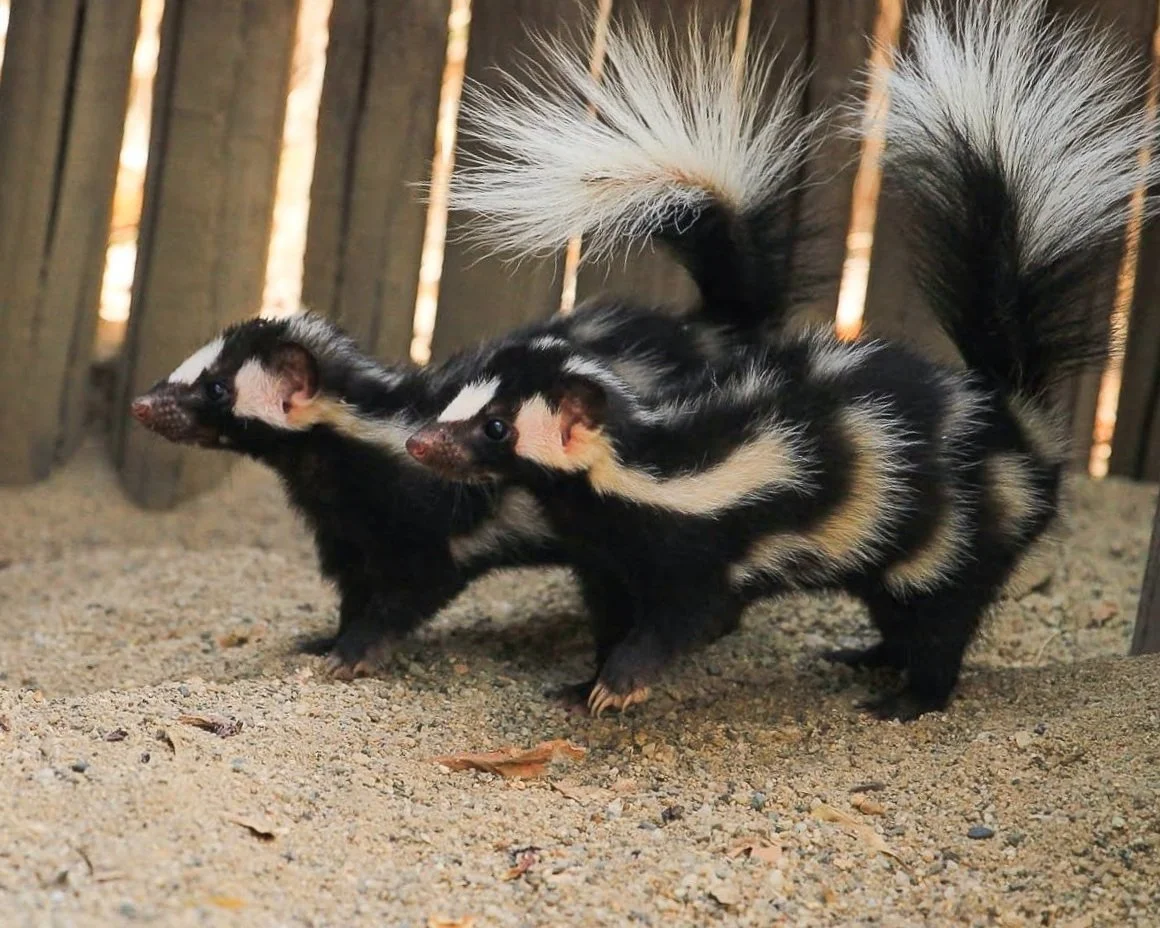Western Spotted Skunks
Range: North America from Central Canada to Northern Mexico
Habitat: Various; from woodlands to grasslands and rural to urban.
Diet: Skunks are omnivores; grubs, insects, roots, vegetables, fruit, small rodents, lizards
Lifespan: Up to 7yrs in the wild; 10 years in human care.
Squirt & Beatle
Squirt and Beatle are brothers. They were found up in the Trinity Mountains, thought to be abandoned. They were taken from the wild in an effort to help, but would have been best left alone. When taken they spent too much time with people and were imprinted on humans, making them no longer fit to live in the wild. They arrived at Turtle Bay when they were 7-8 weeks old, back in 2020.
Fun Facts
Spotted Skunks are the smallest members of the skunk family.
Squirt and Beatle are the only trained Western Spotted Skunks in the country!
Skunks ignore most other animals but when threatened they will arch their back, stomp its feet, and back up while scraping the ground. If these signs are ignored, then the skunk will discharge its musky spray.
Most animals recognize the black and white coloration and learn to stay away, however animals like the Great Horned Owl, which don’t have a good sense of smell, are the main predators of skunks.
Skunks are solitary animals and are mainly crepuscular, becoming active at dawn and dusk. It is not uncommon to see them out during the day.
Their long foreclaws are used for digging up food or occasionally digging their own dens. However, they often use other mammals’ abandoned dens or take advantage of hollowed logs or brush piles.
Skunk musk is very oily and difficult to remove. Tomato juice does NOT work.


